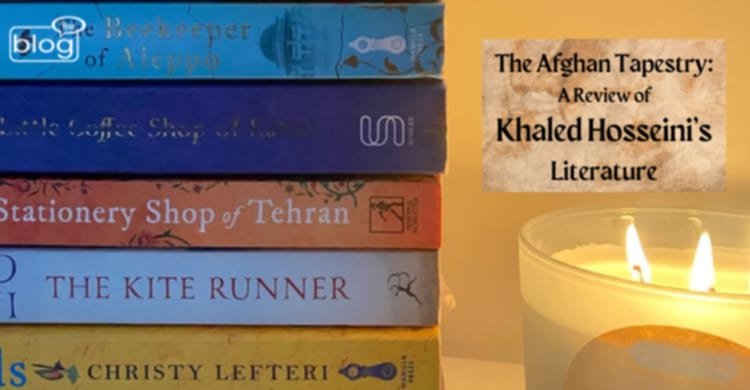The novels of Khaled Hosseini are not simply novels; they are the journey through vibrant tapestries woven with the threads of Afghan history, culture, and that indomitable spirit of human resilience. He does not merely narrate them; he takes you deep into Afghanistan’s sights, sounds, and smells—a land distressed by conflicts yet endowed with a spirit of tenacity. Through myriad interesting characters and heartbreaking accounts, Hosseini has positioned himself as a literary ambassador, traversing cultures and spreading awareness for a part of the world largely misunderstood by many.
From Thereon, his journey to the pinnacle of fame started with “The Kite Runner”. It’s an epiphany set against the backdrop of Afghanistan’s agony over its transformation from monarchy to Soviet invasion, then onto the Taliban regime. The tale deals with the intricacies of friendship between Amir, a Pashtun, and Hassan, the illegitimate son of Ali, their Hazara servant. The kite flying tournament stands for frozen amusement and ultimate betrayal. It powerfully symbolizes the loss of innocence and the deep-rooted burden of guilt. Using this symbol, Hosseini brilliantly evokes themes of class, redemption, and the search for forgiveness, leaving the reader with lingering issues surrounding the moral dilemmas of the characters’ choices. He paints a vivid picture of pre-war Kabul, depicting a bustling civilization, which leaves that much more saliva-icky taste in our mouths after its subsequent decimation.
Though Mariam and Laila seem to belong to different ages, circumstance throws them together, and out of that improbable meeting grows a bond during long years of suffering under the Taliban regime. Afghan women are shown starkly in their suffering in Hosseini’s blurring prose: their limitations, their pain, and their extraordinary strength in the face of it all. The novel celebrates female endurance, the much-needed and hardly rewarded strength of sisterhood, in a society that tries to rob women of agency. Through Mariam and Laila’s interwoven tales, Hosseini bravely and touchingly depicts Afghan women and gives an open window to their world of suffering, sacrifice, and finally, hope.
“And the Mountains Echoed” traces the continuum of family across generations. The tale starts with the wrenching separation of a brother and sister from rural Afghanistan and traces their destinies tied together across continents. This novel aims to explore the intricacies of family relationships, the lasting power of love and loss, and how decisions made resonate over time. Although Afghanistan is a constant presence, the narrative expands to characters in America, accentuating the global reach of the Afghan diaspora. “And the Mountains Echoed” is a more sprawling and intricately interwoven tale compared with the other works of Hosseini and exemplifies his development as a storyteller and his ability to tie together emotional and resonating narratives.
Truly, one of the greatest strengths of Khaled Hosseini’s writing lies in its humanizing the Afghan experience. He talks about the violence and brutality stemming from decades of war and political turmoil while demonstrating how resilient, loving, and hopeful the Afghan people are. His characters possess humanity beyond their stories; their struggles and triumphs come alive for those who share some of their experiences. He avoids engaging in simple caricatures; he prefers complex representations from which he speaks to the social and political realities of Afghanistan.
While it has gained popular acclaim, Hosseini’s work has also suffered from some criticism. Some suggestions have been made that the emphasis on the Afghans’ suffering has only reinforced stereotypes of the region. Others have questioned whether some of the depicted cultural practices are indeed valid. There can be no argument, however, about the fact that his novels have done a lot in creating awareness about Afghanistan and its people. His novels have given voice to the voiceless, have humanized a region most often reduced to headlines, and, gradually, have enabled the world to grasp some of the basic problems facing Afghans.
Khaled Hosseini’s writings are powerful testimonials to the human spirit. In poetic prose, through characters that are real and true, he allows readers to witness the weave of Afghan life with its exquisite beauty, complexity, and heartbreaking agony. His writings are not only stories of Afghanistan; they are stories of humanity, about love, loss, redemption, and how hope casts long shadows. They stay with you after you put the book down, entering your reveries and generating empathy for a land and its people that have suffered a lot.
To read more blogs like this, click here.
Writer
Mahfuza Amir Ela
Intern, Content Writing Department
YSSE

